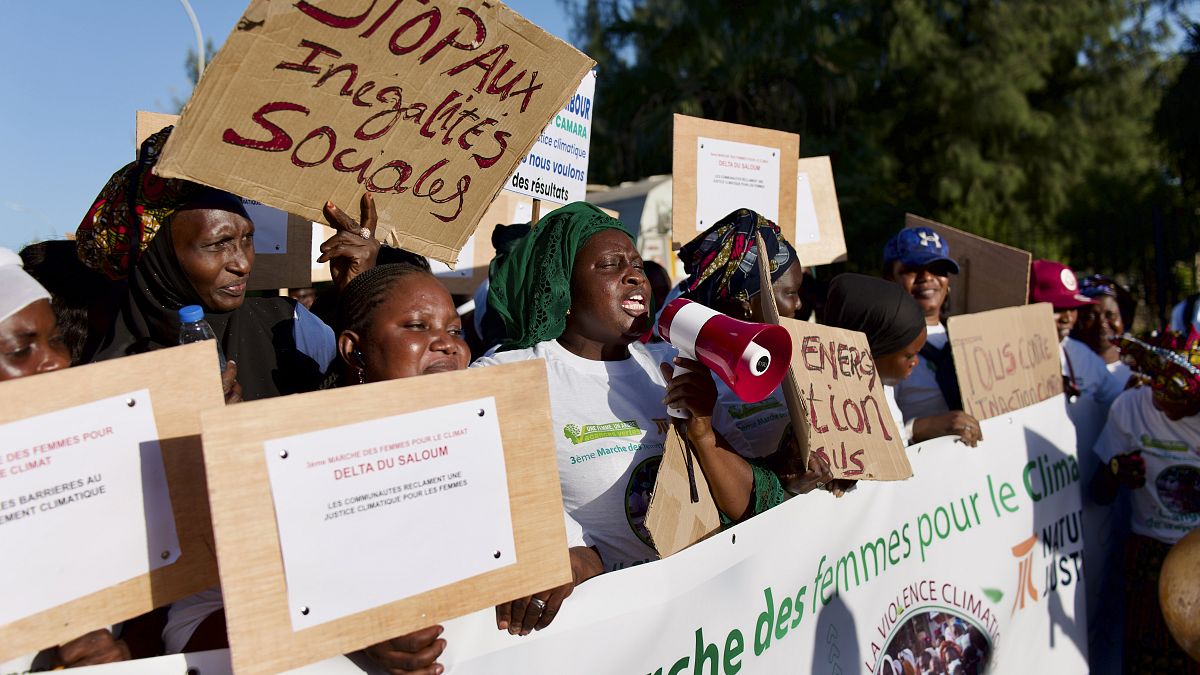Severe climate crises could drive a sharp uptick in the number affected by intimate partner violence in sub-Saharan Africa, a new UN report says.
The number of women and girls facing domestic abuse in sub-Saharan Africa is set to almost triple by 2060 - an increase of more than 90 million - as a result of climate change.
That's according to projections published on Thursday in a new report from the United Nations Population Fund (UNFPA).
Scientists believe that natural disasters and other climate emergencies – like droughts, floods, and earthquakes – do not usually cause gender-based violence, but rather exacerbate existing problems.
The stress of displacement, loss of social support, increased alcohol abuse, food insecurity, financial and other pressures can make it easier for perpetrators to enact violence and leave victims isolated.
However, some studies have also linked extreme heat to violence, with high temperatures potentially driving increased aggression.
For the new study, researchers analysed demographic and health surveys that measure women’s experiences with physical and sexual violence from their husband or intimate partner, and then mapped them onto potential future scenarios based on social and environmental factors in the region.
In the best-case scenario, which envisions "strong climate action and improved socioeconomic conditions," the share of girls and women ages 15 to 49 who are affected by intimate partner violence (IPV) in sub-Saharan Africa would fall from 24 per cent in 2015 to 14 per cent in 2060.
90 million more women at risk
In the worst case scenario – a "business-as-usual approach" with severe climate events – that percentage would stay relatively level but amount to an increase of 90 million people, according to the UNFPA report, which was conducted with the University of Vienna and the International Institute for Applied Systems Analysis (IIASA) in Austria.
"The findings of this report have major policy implications," Kim van Daalen, a postdoctoral researcher focused on climate change and gender inequity at the Barcelona Supercomputing Centre, told Euronews Health.
"The choices we make regarding emission reduction and development pathways will profoundly influence future rates of gender-based violence (GBV) against women and girls".
While the report focuses on sub-Saharan Africa, it is not the only region at risk. Globally, 27 per cent of girls and women have been subject to IPV, according to the report.
However, van Daalen, who was not involved with the UNFPA report, warned that gender-based violence is likely underreported due to social stigma and ineffective law enforcement, "particularly in cultures where preserving family honour, a daughter's dignity and variability is important".
A systematic review of the existing research indicates that climate crises tend to drive up violence against women in high, middle and low-income countries alike.
"One of the big issues is there is a lot of evidence for the US and Australia, but little evidence for the places we know are deeply impacted by climate change, like Africa or Southeast Asia," Heidi Stöckl, a professor of public health evaluation at the University of Munich who co-authored the 2021 review but was not involved with the UNFPA report, told Euronews Health.
That makes it harder to identify the exact pressures that women face in hard-hit, low-income countries, and as a result, harder to support them – both during the acute stage of a climate emergency and in the aftermath, she said.
Victims who are displaced after a landslide, for example, may face long-term housing instability and financial dependence on an abusive partner.
"They are forgotten in some ways, and that's when situations really deteriorate," Stöckl said.















